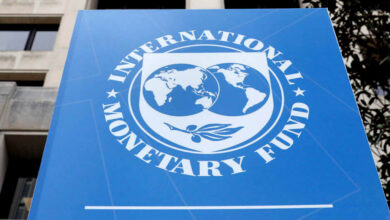India’s rising home prices and rental costs pose a new threat to inflation.

Analysts warn that rising home prices and rents in India’s big cities could make it harder for the country’s central bank to fight inflation, even though overall price increases for consumers have probably reached their peak.
India’s consumer price inflation basket gives housing rentals and other costs 10.07% of its weight, and they are close to their highest levels in three years. This is a new worry for the central bank, which had to deal with rising food prices for most of last year.
A senior official who knows how the Reserve Bank of India (RBI) thinks said that the housing market has become sticky and is being closely watched for signs of second-order effects..
Related: China’s prices for new homes have dropped for the second month in a row.
The year-over-year inflation rate for urban housing was 4.47% in December 2022, up from 3.61% in December 2021 and 3.21% in December 2020, according to data from the Ministry of Statistics and Program Implementation.
Even though the index has gone down since October, when it was at 4.58%, it is still close to its highest level since 2019.
India’s housing inflation sub-index, as shown in a graph: https://www.reuters.com/graphics/INDIA-INFLATION/movakjwonva/chart.png
India’s retail inflation dropped to 5.72 percent in December, which is within the RBI’s comfort zone of 2% to 6% for the second month in a row. For the first 10 months of last year, India’s inflation was above the upper end of that range.
But core inflation, which doesn’t include volatile prices like food and fuel, stayed close to 6%.
Aditi Gupta, an economist at the Bank of Baroda, said, “Core inflation has stayed sticky, and a rise in housing inflation is a big risk to the inflation outlook as a whole.”
She said that most of the recent inflationary pressure has been felt in the non-food basket.
According to real estate consulting firm Anarock, rents in the top seven cities increased by 20% to 25% on average in 2022 compared to before the pandemic.Some of the more popular housing societies saw rents go up by more than 30%.
Even though the effects of the pandemic are fading, some trends, like hybrid work cultures and the need for bigger homes, are likely to stick around. Ranjani Sinha, chief economist at credit rating agency CareEdge Group, said that “sticky” rental prices could cause core inflation to rise.
House prices are too high.
A housing price index made by the RBI to track home sales also shows a steady rise. As of the quarter that ended in September last year, it was at its highest level in over a decade.
The housing price index from the Reserve Bank of India can be seen in this chart at www.reuters.com/graphics/INDIA-INFLATION/dwvkdakybpm/chart.png.
Anarock says that between October and December, the average house price in the top seven cities—National Capital Region, Kolkata, Mumbai Metropolitan Region, Pune, Hyderabad, Chennai, and Bengaluru—rose by 4% to 7%.
That was mostly because input costs went up and demand went up after COVID.
Even though housing prices aren’t included in the consumer price basket, their effects are seen in construction and raw material prices, and analysts don’t expect a slowdown any time soon.
In fact, a poll of real estate experts done by Reuters last month showed that home prices will rise steadily over the next few years, roughly in line with the growth of the economy as a whole.
Related: The prices of homes in the UK are falling again because borrowing costs are going up.
Gupta, from the Bank of Baroda, said the same thing.
“Even though global commodity prices have gone down, they are still high.” Realtors will keep passing on the higher costs of materials to buyers. “Even on the supply side, demand is still strong, which will cause prices to go up,” she added.
Higher interest rates haven’t stopped people from buying much so far, and they aren’t likely to stop people from buying in the future either. Dhaval Ajmera, the director of Ajmera Realty and Infra India, thinks that this won’t happen until interest rates go over 9%.
Analysts said that rising house prices would also lead to more demand for services like electricity and repairs, which would eventually add to inflation as a whole.





